译林版(2019)必修三: Unit 3The world online Welcome to the unit 课件(20张ppt)
文档属性
| 名称 | 译林版(2019)必修三: Unit 3The world online Welcome to the unit 课件(20张ppt) |

|
|
| 格式 | pptx | ||
| 文件大小 | 6.0MB | ||
| 资源类型 | 教案 | ||
| 版本资源 | 牛津译林版(2019) | ||
| 科目 | 英语 | ||
| 更新时间 | 2022-11-06 14:03:49 | ||
图片预览

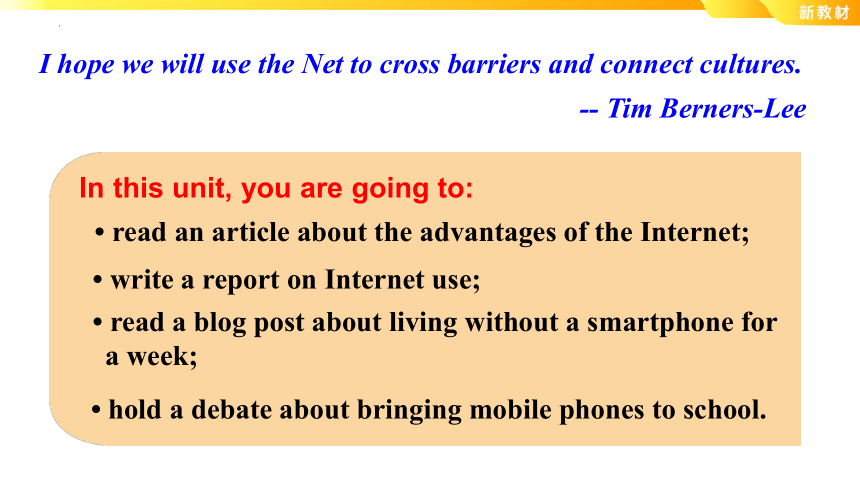
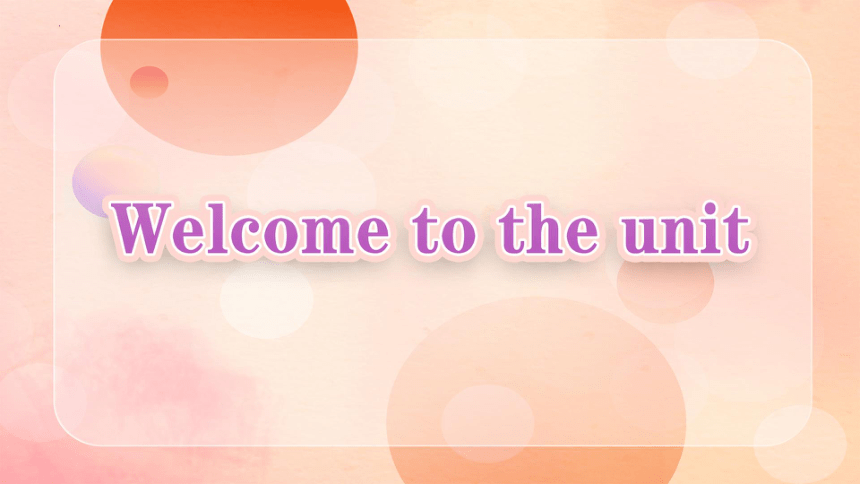
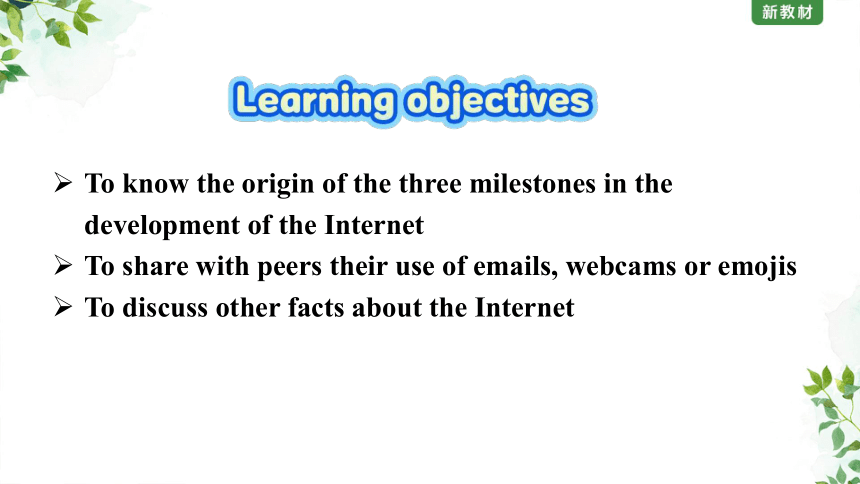
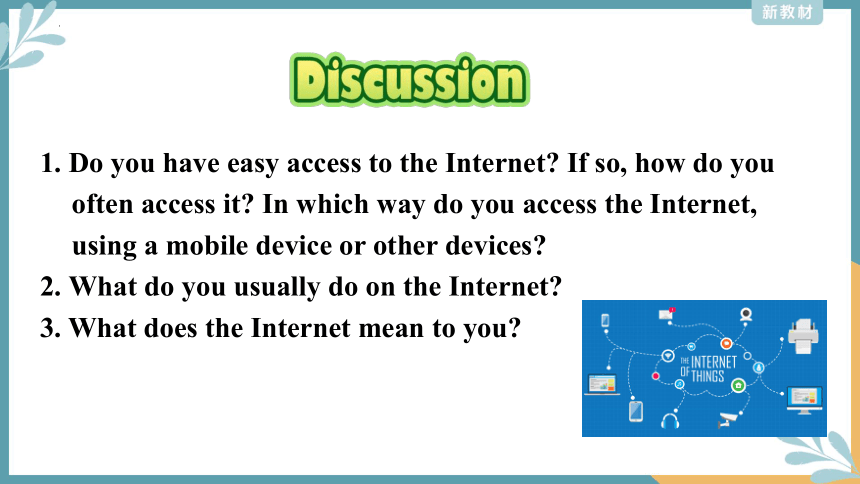
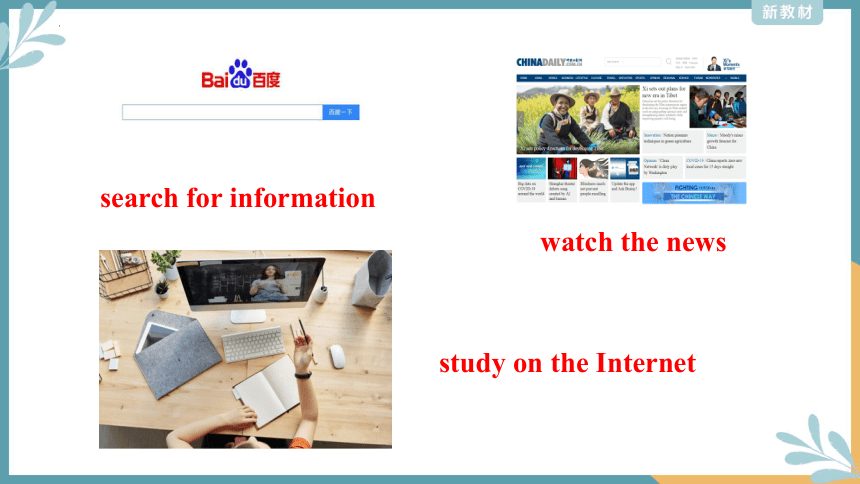
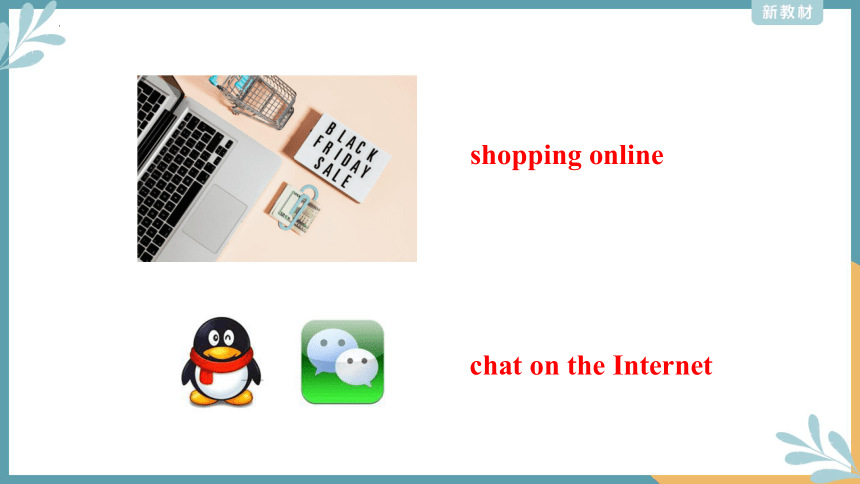
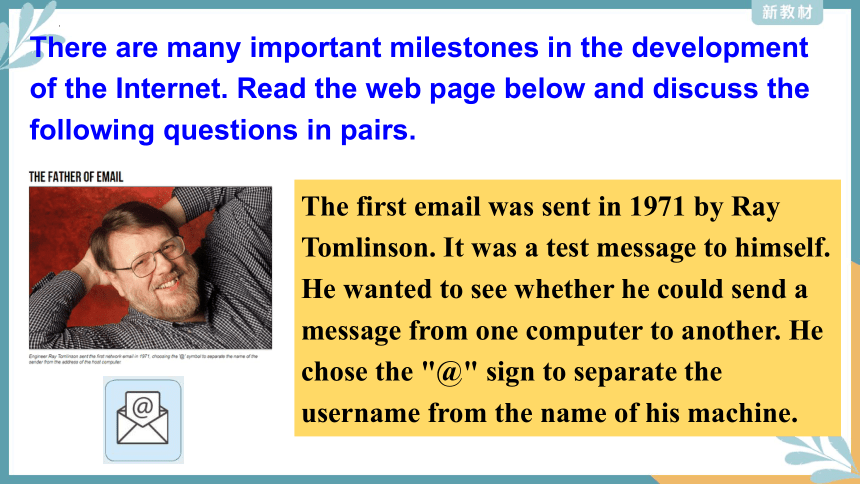
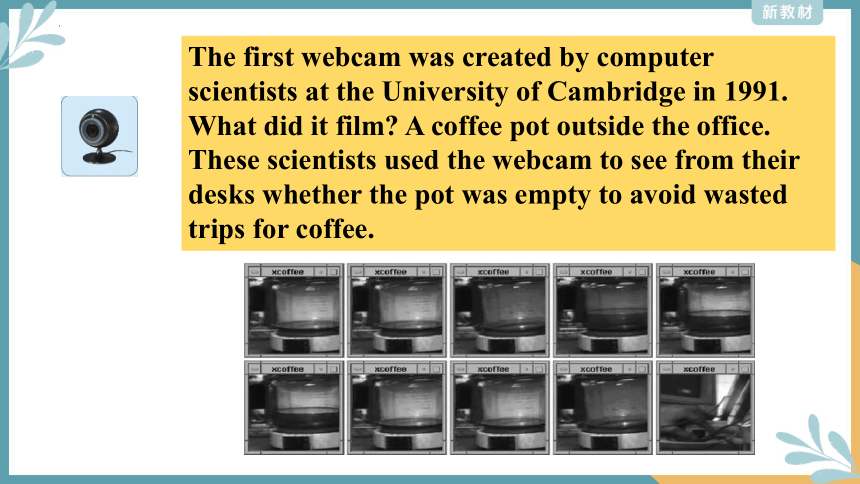
文档简介
(共20张PPT)
Unit 3
The world online
I hope we will use the Net to cross barriers and connect cultures.
-- Tim Berners-Lee
In this unit, you are going to:
write a report on Internet use;
read a blog post about living without a smartphone for a week;
hold a debate about bringing mobile phones to school.
read an article about the advantages of the Internet;
To know the origin of the three milestones in the development of the Internet
To share with peers their use of emails, webcams or emojis
To discuss other facts about the Internet
1. Do you have easy access to the Internet If so, how do you often access it In which way do you access the Internet, using a mobile device or other devices
2. What do you usually do on the Internet
3. What does the Internet mean to you
search for information
watch the news
study on the Internet
shopping online
chat on the Internet
There are many important milestones in the development of the Internet. Read the web page below and discuss the following questions in pairs.
The first email was sent in 1971 by Ray Tomlinson. It was a test message to himself. He wanted to see whether he could send a message from one computer to another. He chose the "@" sign to separate the username from the name of his machine.
The first webcam was created by computer scientists at the University of Cambridge in 1991. What did it film A coffee pot outside the office. These scientists used the webcam to see from their desks whether the pot was empty to avoid wasted trips for coffee.
Emojis, small digital images used to express ideas or feelings in electronic communication, were created in 1999 in Japan. The creator was inspired by Japanese comics, street signs and Chinese characters. Soon emojis took off throughout the world. Oxford Dictionaries selected , the "Face with Tears of Joy" emoji, as the Word of the Year 2015.
What examples of important milestones in the development of the Internet are mentioned
The first email, webcam and emojis.
Discuss the following questions in pairs.
1. Which of the above inventions do you use most frequently Why
I use emojis most frequently when I message my friends. They look cute, and are a quick and easy way to express how I am feeling.
2. What other facts do you know about the Internet
The term “surfing the Internet” was first popularized in print by Jean Armour Polly, a librarian, in 1992. In 2010, Finland became the first country to make Internet access a legal right.
1. I hope we will use the Net to cross barriers and connect cultures.
--- Tim Berners-Lee
我希望我们能用互联网跨越障碍, 联结文化。
— 蒂姆·伯纳斯·李
该句出自英国计算机科学家蒂姆·伯纳斯·李。他是万维网
(World Wide Web)的发明者。这句话体现了伯纳斯李对互联
网的美好愿景。他希望互联网能发挥其互联互通的作用, 跨
越各种障碍, 成为不同文化的纽带, 带来信息交流的全新模式。
2. Soon emojis took off throughout the world.
很快表情符号就风靡全球了。
take off: to become successful or popular very quickly or suddenly 突然大受欢迎, 迅速流行
e.g. The magazine took off after the interview.
那次采访之后这本杂志大受欢迎。
【归纳】take off还有以下意思:
1) (飞机)起飞
e.g. We eventually took off at 11 o'clock.
我们终于在11点起飞。
2) 脱下, 脱掉(衣物)
e.g. take off one's coat, hat, shoes, skirt, trousers, etc
脱大衣、帽、鞋、裙子、裤子等
3) 休假; 休息
e.g. I have decided to take a few days off work next week.
我已决定下星期休息几天。
【语境应用】写出下列各句中take off的意思。
1) The plane is going to take off in 10 minutes. ( )
2) You have to take off your shoes before you go to the computer room. ( )
3) I want to take next Friday off. ( )
4) In recent years, shopping online has taken off.
( )
起飞
脱下
请假
迅速流行
【拓展】take短语
take away 拿走;减去;解除
take in 收留;使……上当;欺骗;领会;明白
take out 带(某人)出去;取出
take on 承担,从事;呈现
take up 开始从事;占据;着手处理;继续
take part in 参加
take care of 照顾,照料
take place 发生
Write down your use of the emails, webcams or emojis.
Preview Reading part.
Unit 3
The world online
I hope we will use the Net to cross barriers and connect cultures.
-- Tim Berners-Lee
In this unit, you are going to:
write a report on Internet use;
read a blog post about living without a smartphone for a week;
hold a debate about bringing mobile phones to school.
read an article about the advantages of the Internet;
To know the origin of the three milestones in the development of the Internet
To share with peers their use of emails, webcams or emojis
To discuss other facts about the Internet
1. Do you have easy access to the Internet If so, how do you often access it In which way do you access the Internet, using a mobile device or other devices
2. What do you usually do on the Internet
3. What does the Internet mean to you
search for information
watch the news
study on the Internet
shopping online
chat on the Internet
There are many important milestones in the development of the Internet. Read the web page below and discuss the following questions in pairs.
The first email was sent in 1971 by Ray Tomlinson. It was a test message to himself. He wanted to see whether he could send a message from one computer to another. He chose the "@" sign to separate the username from the name of his machine.
The first webcam was created by computer scientists at the University of Cambridge in 1991. What did it film A coffee pot outside the office. These scientists used the webcam to see from their desks whether the pot was empty to avoid wasted trips for coffee.
Emojis, small digital images used to express ideas or feelings in electronic communication, were created in 1999 in Japan. The creator was inspired by Japanese comics, street signs and Chinese characters. Soon emojis took off throughout the world. Oxford Dictionaries selected , the "Face with Tears of Joy" emoji, as the Word of the Year 2015.
What examples of important milestones in the development of the Internet are mentioned
The first email, webcam and emojis.
Discuss the following questions in pairs.
1. Which of the above inventions do you use most frequently Why
I use emojis most frequently when I message my friends. They look cute, and are a quick and easy way to express how I am feeling.
2. What other facts do you know about the Internet
The term “surfing the Internet” was first popularized in print by Jean Armour Polly, a librarian, in 1992. In 2010, Finland became the first country to make Internet access a legal right.
1. I hope we will use the Net to cross barriers and connect cultures.
--- Tim Berners-Lee
我希望我们能用互联网跨越障碍, 联结文化。
— 蒂姆·伯纳斯·李
该句出自英国计算机科学家蒂姆·伯纳斯·李。他是万维网
(World Wide Web)的发明者。这句话体现了伯纳斯李对互联
网的美好愿景。他希望互联网能发挥其互联互通的作用, 跨
越各种障碍, 成为不同文化的纽带, 带来信息交流的全新模式。
2. Soon emojis took off throughout the world.
很快表情符号就风靡全球了。
take off: to become successful or popular very quickly or suddenly 突然大受欢迎, 迅速流行
e.g. The magazine took off after the interview.
那次采访之后这本杂志大受欢迎。
【归纳】take off还有以下意思:
1) (飞机)起飞
e.g. We eventually took off at 11 o'clock.
我们终于在11点起飞。
2) 脱下, 脱掉(衣物)
e.g. take off one's coat, hat, shoes, skirt, trousers, etc
脱大衣、帽、鞋、裙子、裤子等
3) 休假; 休息
e.g. I have decided to take a few days off work next week.
我已决定下星期休息几天。
【语境应用】写出下列各句中take off的意思。
1) The plane is going to take off in 10 minutes. ( )
2) You have to take off your shoes before you go to the computer room. ( )
3) I want to take next Friday off. ( )
4) In recent years, shopping online has taken off.
( )
起飞
脱下
请假
迅速流行
【拓展】take短语
take away 拿走;减去;解除
take in 收留;使……上当;欺骗;领会;明白
take out 带(某人)出去;取出
take on 承担,从事;呈现
take up 开始从事;占据;着手处理;继续
take part in 参加
take care of 照顾,照料
take place 发生
Write down your use of the emails, webcams or emojis.
Preview Reading part.
同课章节目录
- Unit 1 Nature in the balance
- Welcome to the unit
- Reading
- Grammar and usage
- Integrated skills
- Extended reading
- Project
- Unit 2 Natural disasters
- Welcome to the unit
- Reading
- Grammar and usage
- Integrated skills
- Extended reading
- Project
- Unit 3 The world online
- Welcome to the unit
- Reading
- Grammar and usage
- Integrated skills
- Extended reading
- Project
- Unit 4 Scientists who changed the world
- Welcome to the unit
- Reading
- Grammar and usage
- Integrated skills
- Extended reading
- Project
